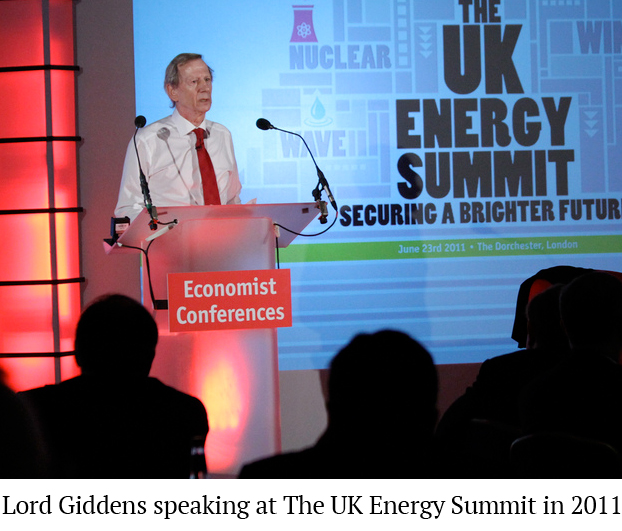In his book 'Bobos in Paradise', the author and New York Times columnist David Brooks included a chapter on 'How to be an Intellectual Giant'. It's basically Brooks's tongue-in-cheek guide to how people can select and present their ideas in such a way that guarantees their intellectual stardom.
If he's read the book, Anthony Giddens, the hugely influential British sociologist and former director of the London School of Economics, could probably be forgiven for skipping that particular section. Still, I can't help but feel that he might have taken a sneaky peek because his 2009 book on 'The Politics of Climate Change' employs a handy reputation-boosting trick of its own. In it, Lord Giddens describes what he calls 'Giddens's paradox':
"[Which] states that, since the dangers posed by global warming aren't tangible, immediate or visible in the course of day to day life, however awesome they appear, many will sit on their hands and do nothing of a concrete nature about them. Yet waiting until they become visible and acute before taking serious action will, by definition, be too late."
Like most people, I think this is an excellent point. For me, it goes a long way to explaining why societies have failed to get to grips with the problem of climate change. The argument is even clearer when Lord Giddens compares the situation that we all face with climate change to that faced by an individual smoker. People are aware that their habit is dangerous, but most of the damage is done before they begin to experience the negative health effects, so they don't give up until it's too late.
Hats off to Lords Giddens for doing such a good job of articulating the point. To be honest, though, I've always thought it a bit rich of him to try and label it as Giddens's paradox. I can't claim to have reviewed all the literature to prove it, but I'd be willing to bet quite a lot of money that the same basic point was being made long before he came along and attached his name to it.
It might not be fair to the thinkers that came before him, but that doesn't mean it hasn't been effective in building his reputation. Whenever I make the point these days I almost always introduce it as Giddens's paradox. I wouldn't be surprised if others who've read the book do the same. It's not because I credit Lord Giddens with the insight; it's much more to do with it being a handy label that's easy to remember.
I think the key lesson is this: if you fancy a reputation boost, but haven't come up with an idea capable of delivering it for you, just find a simple truth that hasn't yet got a catchy name and attach your own to it. For simplicity's sake, let's just call it 'The Webber Rule'.




